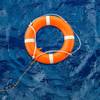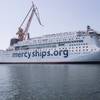IMO Appeal to UN Security Council
IMO Secretary-General Efthimios E. Mitropoulos has issued a call at the highest level for a coordinated and cohesive response, both internationally and nationally, to combat piracy off the coast of Somalia.
In a Nov. 20 briefing to the UN Security Council, Secretary-General Mitropoulos told Security Council members about the scope and extent of the problem which, he said, was a matter of grave concern. He also outlined a series of actions the Security Council might consider taking to address the situation. In particular, he requested that the Security Council take the following action:
• extend the validity of the mandate in paragraph 7 of resolution 1816;
• call upon States interested in the safety and environmentally sound function of shipping activities, that have the capacity to do so, to take part actively in the fight against piracy and armed robbery against ships (including "mother ships") off the coast of Somalia and in the Gulf of Aden;
• strengthen and enhance the provisions of resolutions 1816 and 1838, particularly with respect to having clear rules of engagement for participating units to facilitate the disruption of pirate operations; and
• urge States, with due regard to their obligations under international law, to establish an effective legal jurisdiction to bring alleged offenders to justice.
Mr. Mitropoulos told the Security Council of IMO's threefold concern to:
• protect seafarers, fishermen and passengers on ships sailing off the coast of Somalia and in the Gulf of Aden;
• ensure the safe delivery of humanitarian aid to Somalia effected by ships chartered by the World Food Program; and
• preserve the integrity of the shipping lane through the Gulf of Aden, given its strategic importance and significance to shipping and trade east and west of the Suez Canal.
He added that, notwithstanding IMO's prime concern for the safety of seafarers, the volume of trade transported through the Gulf of Aden makes it imperative that this shipping lane is adequately protected against any acts that might disrupt the flow of traffic through it. He said that, with more than 12% of the total volume of oil transported by sea using that route - not to mention commodities carried by bulk carriers and finished goods transported by containerships - widespread diversions around the Cape of Good Hope, to avoid the trouble spot, would bring about a series of negative repercussions. Such diversions would almost double the length of a typical voyage from the Gulf to Europe thereby increasing fuel consumption, emissions and transport costs, which would have to be passed on eventually to consumers everywhere.
IMO first brought the matter of piracy off Somalia to the attention of the Security Council in 2005. Subsequently, the Security Council issued a Presidential Statement on the subject in March 2006 and adopted resolutions 1816 and 1838, in June and October 2008 respectively.
In spite of a temporary improvement in the situation following the Council's action, the situation has deteriorated dramatically in recent months, with an increase in both the frequency and the ferocity of reported attacks. Of a total of some 440 acts of piracy and armed robbery reported to have taken place off the coast of Somalia since IMO started compiling relevant statistics in 1984, more than 120 attacks have been reported this year alone. More than 35 ships have been seized by pirates and more than 600 seafarers have been kidnapped and held for ransom. Currently, 14 ships and some 280 seafarers from 25 nations are being held hostage in Somalia. Two seafarers have already lost their lives.
According to information received by IMO, the attackers usually employ one of two methods: they either attack ships on the high seas, often at considerable distances from the shore, making use of so-called "mother ships" (as was the case in the hijacking, last Saturday, of the fully laden VLCC Sirius Star in the Indian Ocean some 450 nautical miles from the coast of Kenya); or they attack (and hijack) ships in Somalia's territorial sea, sometimes under the watchful eyes of warships outside those waters but, until the adoption of resolution 1816, not empowered to intervene for fear of breaching international law.
Mitropoulos paid tribute to the efforts of members of the international community, alliances of States and regional organizations, NATO and the European Union in particular, to address the issue by dispatching naval forces and military aircraft to patrol the vast area off the coast of Somalia and in the Gulf of Aden and by escorting vessels used by the World Food Program to provide humanitarian relief to the Somali people. But he added that, because of the extensive coastline of Somalia (2,105nm or 3,898 kilometres in total of which 659nm or 1,204km in the Gulf of Aden), there was a need for as many naval vessels and military aircraft as possible for the task to be carried out effectively.
IMO has taken action to increase awareness of the problem and, in co-operation with the shipping industry, to advise ships on practicable measures they can take in the event of an attack. Meanwhile, through its technical co-operation program, the Organization is assisting countries in the region to build capacity to add their contribution to the overall efforts, including putting in place any necessary relevant legislation.










